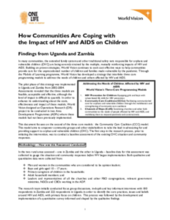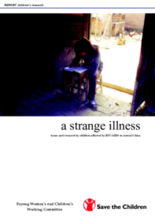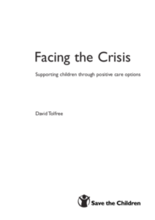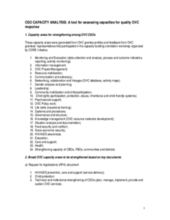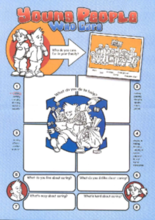Displaying 291 - 300 of 346
Practical guidelines emphasizing the importance of and rationale for ethical standards in child-related research. Annexes include country-specific resources and example documents.
This document highlights a children’s saving program in the state of Missouri, USA. The five-year initiative focuses on increasing financial knowledge and self-efficacy, as well as saving accounts, among children and parents. The end goal is to increase student engagement in post-secondary education and training.
Assessment of pilot programs employing World Vision Community Care Coalition model in Uganda and Zambia.
Guidance and examples of group activities which promote development and self-esteem, and the role of the worker in providing activities on a regular basis.
A participatory report of concerns raised by children affected by HIV/AIDS in central China. Uses children’s responses to identify child vulnerabilities and suggest appropriate future action.
A paper with guidelines for keeping children with families and providing proper care and protection for them. It provides examples and plans for those interested in planning care for separated children.
This document provides a tool that was used to assess broad capacity areas for quality OVC response in Uganda.
Discusses specific steps to expand on policy guidelines for youth protection and care. Includes list of additional practical resources.
A child friendly assessment form for children/young people who are caregivers. The assessment helps them to identify what support services they may need.
A brief fact sheet on global permanency planning, which highlights the importance of using an individualized and multidisciplinary approach to creating a long-term plan for every child.



